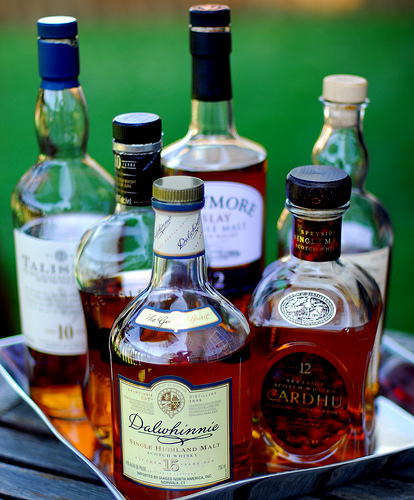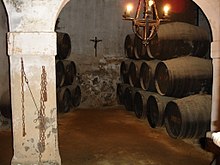 |
| Whisky |
But let’s be honest: There are quite some differences between whiskey and brandy. It begins with the raw materials, over methods and how to consume the actual product.
Whiskey is made from grains, normally barley. That is then mixed with water and yeast, then it gets distilled. The spirit then is aged in oak barrels.
Now what is the difference between Whiskey and Whisky? One word with the “e” and the other one without it. The spelling referrs to the location of distilling: Whisky comes from Scotland, Japan or Canada – and whiskey comes from Ireland and the United States.
The name “brandy” comes from Dutch “branwijn”, burnt wine. And that is quite a good name, as wine is distilled for brandies and of course Cognac.
The raw material of cognac is grapes: A juice is fermented and we get a very acid wine as a result – perfect for cognac production. The juice is fermented about 5 days before distilling, after a double distillation process, the eaux-de-vie is stocked in oak casks.
 |
| Brandy barrel ageing |
Both Cognac and Whiskey is aged in casks. The age of brandies can be below three to six years, and Cognac at least 2 1/2 years. Most of the brandies are below six years, but can also be a hundred years old.
While cognac and brandy uses age terms such as VOP, VS, VSOP or XO, Whiskey shows the exact age of its content: for example 3, 5, 10, 12 or 15 years. There are also Whiskies at 18 years, but older seems to be rare and pricey.
 |
| Rémy Martin XO Premier Cru |
 |
| The Macallan 18 year Whiskey |
There are also Cognacs where you can add a spash of water.
So, brandy and whiskey differ in quite some points.
And what is the difference between a brandy and a cognac? Well… all Cognac is brandy, but not all brandy is Cognac.
No comments:
Post a Comment